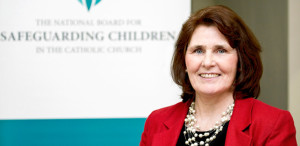
By Sarah Mac Donald - 29 May, 2015
 New figures released by the National Board for Safeguarding Children show a slight decrease in the number of allegations of historical abuse against diocesan priests last year and a large increase in allegations against members of religious orders.
New figures released by the National Board for Safeguarding Children show a slight decrease in the number of allegations of historical abuse against diocesan priests last year and a large increase in allegations against members of religious orders.
During the 2014/15 period, 184 new allegations, suspicions or concerns were shared with the National Office according to the NBSCCCI’s annual report which was published on Thursday.
In addition, 81 allegations of physical and emotional abuse, previously reported to the civil authorities by one religious congregation during the year ending 31 March 2015.
The total number of allegations notified to the National Board from 1 April 2014 until 31 March 2015 was as follows:
Allegations against:
Diocesan priests – 58
Religious priests, brothers and sisters – 126
One religious congregation shared in March – 81
Total number of allegations – 265
The abuse allegations against diocesan clergy related to the period 1950 up to 1997, with one case outside this timeframe where the abuse is alleged to have taken place in 2006.
In the case of religious orders and congregational priests and religious, abuse allegations related to the timeframe from 1950 up to 1990, with one case where the abuse is alleged to have taken place in 1999.
The National Board has received no allegations of abuse taking place after 2006 in the year under review.
Speaking to CatholicIreland.net, Teresa Devlin, Chief Executive of the NBSCCCI, said, “Things have improved significantly over the years and most notably over the last year. There is no doubt that allegations are being promptly reported to the civil authorities agencies now. That is a pattern that has been developing over the years.”
“I am very pleased that the Church is recognising the need to inform the statutory authorities and not to interfere with any civil inquiries, but to delay the church inquiries until after those civil inquiries have been completed.”
She added, “The work continues, it is not over. There are children who still require to be safeguarded in the Church and we still need to push the whole good standards agenda.”
The National Board has said it is confident that the current review programme, involving all remaining religious congregations, will be concluded by end of 2015 ahead of the introduction of new safeguarding standards next year.
Writing in the annual report, Teresa Devlin stated, “We are acutely conscious of the significance of the phrase ‘who watches the watchmen’.”
The NBSCCCI commissioned Dr Ann Marie Nolan from Trinity College Dublin to examine all its diocesan reviews to see if it had been consistent in applying its safeguarding standards correctly and to highlight any issues that should be addressed.
While highlighting some difficulties in conducting a full comparative analysis, Dr Nolan identified a number of areas of good practice in her conclusions.
The Board’s audits indicate that the requirement to report promptly allegations to the statutory authorities is now fully complied with.
According to Teresa Devlin, Dr Nolan concluded that overall there is good compliance against the standards, particularly that there is now prompt reporting of allegations to the civil authorities.
“The findings of Dr Nolan’s research and evaluation are very welcome to the National Board and will help influence developments in good audit practices by the Board” John Morgan, Chairman of NBSCCCI stated.
A number of the allegations related to a small number of respondents, indicating a pattern of prolific abuse by these respondents. In all cases where there are a large number of allegations, the accused was either deceased or had been convicted of the offences.
The report found that a number of complainants are still unwilling to make a statement to the Gardaí or PSNI, and as a result a criminal investigation cannot take place.
“While I completely understand the trauma and stress that people feel of telling their story, as it takes a huge amount to tell anyone, I think they deserve justice,” Teresa Devlin commented.
However, she added, that “If some of the people who have harmed them were prosecuted in a court of law, that would be a good thing. I would prefer that people go to the Gardaí and the PSNI and that there is a criminal investigation. I think it is much better in terms of justice.”
Not making a statement to the criminal enforcement agencies also delays any opportunity for some kind of redress canonically, she warned.